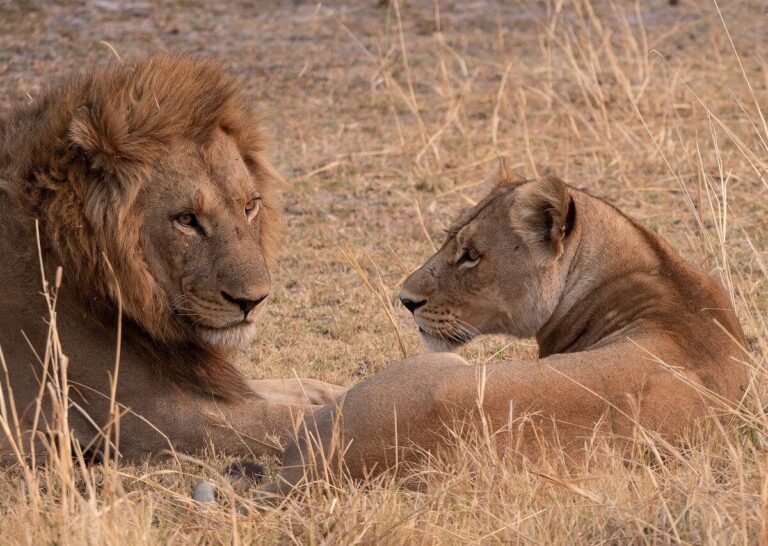Six young lions, victims of the illegal wildlife trade in Kuwait, have found a new home at the ADI Wildlife Sanctuary in South Africa. These lions, acquired for status and later abandoned, now embark on a new life free from neglect and danger.
From ‘Pet Lions’ to Abandoned Animals
Irresponsible owners callously abandoned the lions – males Muheeb, Saham, Shujaa, Saif, and females Dhubiya and Aziza . Owners left their pet lions on the streets of Kuwait City while abandoning others in the desert. Thankfully, staff and volunteers at Kuwait Zoo, alerted by authorities, were able to recapture the young animals.
Thankfully, Animal Defenders International (ADI) stepped in to offer these lions a permanent home. Rescuers found Dhubiya and Saif, two lion cubs, starving in the desert. Kuwait Zoo diligently nursed Dhubiya and Saif back to health, and now they’re thriving in their new African home.
Qatar Airways Cargo played a vital role in this rescue mission by donating a special cargo flight. This flight, part of their WeQare scheme, transported the lions from Kuwait to Qatar and then on to South Africa. Throughout the journey, renowned wildlife veterinarian Dr Peter Caldwell monitored the lions closely, including during sedation for safe travel. ADI’s Jan Creamer and Tim Phillips ensured the lions were fed and watered during the flight.
The ADI Wildlife Sanctuary in South Africa’s Free State province became the first stop for the lions. Initially, they were housed in night enclosures. Now, they’ve been moved to quarantine areas where they can expend energy by playing with giant balls and catnip punchbags. Following a two-week quarantine, the lions will move into expansive, individual enclosures, each providing up to 4 acres of roaming space.
The Dark Side of ‘Pet Lions’
These six lions, now known as the “Kuwait 6,” serve as a stark reminder of the cruel and global trade in exotic pets. Irresponsible social media posts glamorizing human interaction with big cats fuel this illicit business.
The reality is far from glamorous. The illegal trade rips cubs away from their mothers at a young age, leaving them with emotional scars and dependent on humans for survival. People cruelly confine these animals to cramped, unsuitable conditions, chaining, caging, or even keeping them in basements.
Used as mere status symbols, these magnificent creatures with complex emotions and intelligence can live for up to 20 years. However, once the novelty wears off, they are discarded like unwanted possessions. Lions have high dietary costs, powerful nature, and potentially dangerous behaviors when kept in a domestic environment.
ADI fears that without stricter regulations and a shift in public perception, the trend of keeping big cats as pets will escalate, leading to even more abandoned lions and tigers worldwide.
How ADI views The Situation
Jan Creamer, President of ADI, said: “The Kuwait 6 lions have a bright future ahead of them. Here at the ADI Wildlife Sanctuary, they will have ample space to roam and live a life as close as possible to what they were denied. While this is wonderful news for these lions, it also serves as a stark reminder of the cruelty of the illegal wildlife trade. Lions are wild animals, not pets. ADI is grateful to everyone involved in this rescue – the Kuwaiti authorities for their efforts to combat this illegal trade, Kuwait Zoo for providing temporary shelter, Qatar Airways Cargo for transporting the lions to safety, and of course, our dedicated supporters who make this vital work possible.”

